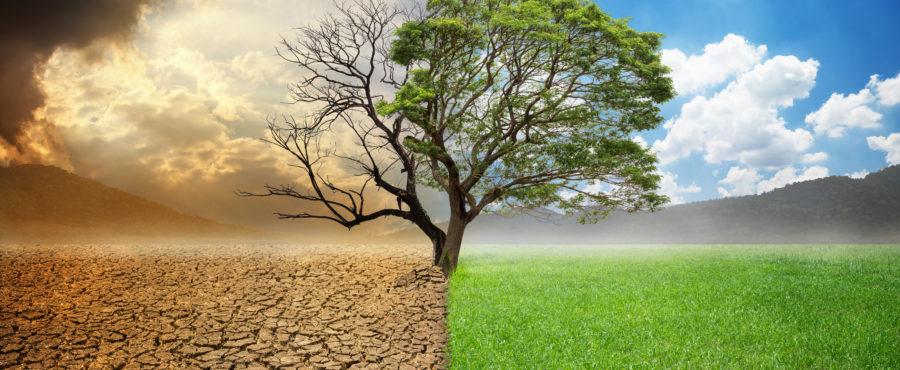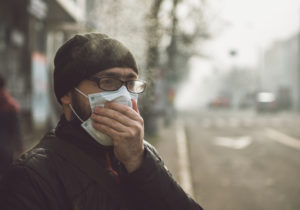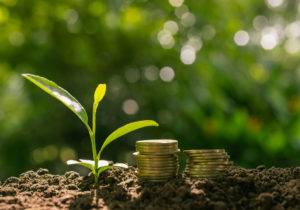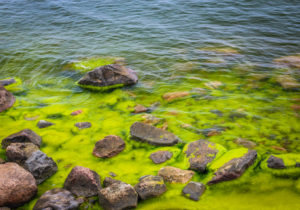
Carbon dioxide as a component of air is a gas which is vital for human life. However, in excessive quantities it is not only poisonous, but also contributes to climate change, negatively affecting the world’s ecosystem. The current week (18-24 November) is the Week of Global Education and its motto is: “Wake up! Last chance for climate!”. This is a very good moment for everyone to start initiatives curbing CO2 emission.
Global warming is a fact. In 2015 the measured growth of temperature of the Earth’s surface exceeded 1°C above the level from the pre-industrial era. According to experts’ predictions, if today’s energy policy is not changed significantly, then as early as in the fourth decade of the 21st century, this figure will exceed 1.5°C, which may bring about catastrophic consequences to our planet and ourselves – weather anomalies or drinking water shortages.[1]
One of greenhouse gases which causes the greenhouse effect and raises the Earth’s temperature is carbon dioxide. Though it is largely generated in natural processes, human activity is responsible for surplus emission, which is the main cause of the warming we are witnessing. In 2017 a statistical person in the European Union generated 7.2 tonnes of CO2 on average.[2] This is carbon footprint, which may be easily minimised by, for instance, choosing public transport instead of a car, or by limiting air travel. In general, burning solid fuels (such as coal) in home stoves is not helping, either.
How to limit carbon emission?
The Polish energy sector is still based in nearly 80 per cent on bituminous and brown coal. However, in the latest draft of Poland’s Energy Policy 2040 we may read that by 2030 the share of coal may drop down to 56-60 per cent, with the use of renewable energy sources growing up to 21-23 per cent (versus today’s 11 per cent). What’s important is that everyone can contribute to the increasing use of energy from renewable sources. “One of the options is to install solar panels. With this solution we not only may limit consumption of energy produced to a large extent from coal, but also generate savings in the long run. The prosumer system of discounts allows returning some of the energy generated by a home solar system back to the grid,” explains Anna Sawicka, Ecological Strategy Development Expert in Bank Ochrony Środowiska.
A proper heat source is also another way to limit CO2 emission into the atmosphere. Regrettably, many Polish households are still heated by poisonous black-smoke-belching stoves. “Replacing an old stove with a more effective one not only will reduce the amount of carbon dioxide released into the atmosphere but also benefit our health. One should remember that burning solid fuels produces also cancerogenic dusts and benzopyrenes,” says Anna Sawicka.
Assistance from the state and local governments
Climate challenges are addressed in a number of ways, both centrally and locally. Program called “Czyste Powietrze” (Clean Air) carried out by the National Fund for Environment Protection and Water Management (NFOŚiGW) offers assistance (in the form of loans and subsidies) to those who want to replace their non-ecological source of heating. “Mój Prąd” (My Current) program is a proposal targeting those who would like to install a micro solar system in their home. The subsidy covers up to 50 per cent of the project’s costs, but no more than 5,000 PLN. Financing of “Green energy” and measures supporting anti-smog initiatives may be provided, for instance, by Bank Ochrony Środowiska, which grants dedicated, preferential loans and advances for such purposes. One should also try to find out whether their local authorities carry out any programs which may offer subsidies to pro-ecology projects.
[1] Marcin Popkiewicz, Aleksandra Kardaś, Szymon Malinowski, Nauka o klimacie, Katowice 2018, p. 24
[2] https://ec.europa.eu/eurostat/statistics-explained/index.php/Greenhouse_gas_emission_statistics_-_carbon_footprints




